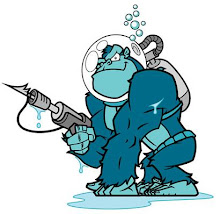Foundation for Rural Integrated Enterprises & Development (FRIEND)
The Foundation for Rural Integrated Enterprises & Development (FRIEND) is a homegrown community development Organisation headquartered in Lautoka on the west coast of Fiji’s main island, Viti Levu. The hallmark of FRIEND’s work is the integrated approach it brings into community development, working with communities in rural and under-served regions around Fiji.
Through its integrated social, health and economic interventions, FRIEND empowers communities through knowledge, skills and resources to improve their lives and break out of poverty. With the support of donor partners and through its own funding, FRIEND engages Communities in Programs focussed on Good Governance, Sustainable Livelihoods, Disaster Preparedness and Healthy Living, targeting women, youths, marginalised and men in each community we work in for sustainable development.
Food Systems and Health
Our GROW (Agriculture) program is about creating sustainable and organic farms for Food Security, livelihood and Health. We encourage the use of natural methods to fertilise the soil, manage soil water needs, manage weeds and deal with pests.
We discourage the use of any form of artificial chemicals in any of the methods mentioned because evidence has proven that these chemicals especially weedicides (chemicals that kill grass and unwanted plants) and pesticides (chemicals that kill unwanted insects and small organisms) directly cause Cancer or are highly likely to cause cancer in agriculture based communities. The International Agency for Research on Cancer (IARC) of the World health Organisation (WHO) has identified chemicals like Glyphosate and Orthene as highly likely to cause cancer. Both these two chemicals are heavily used in Fiji by farmers, farm labourers, road and railway maintenance labourers and market vendors.
Other International Research organisations in Health, Food and Nutrition, Agriculture and Environment have provided the latest findings of how diseases like Diabetes Mellitus are caused by Endocrine Disrupting Chemicals in Food and water Sources.
This means that the heavy usage of artificial chemicals (pesticides, weedicides, growth enhancing) on crops and livestock are causing problems with the body’s hormones and hormonal systems, therefore, leading to the development of the many diseases with unclear causes and incurable complications like Diabetes (2nd highest killer in Fiji), Cancer (3rd highest killer in Fiji) and other NonCommunicable Diseases burdening our already struggling families, Health System and our National Economy. To achieve good health and sustainable livelihoods for our families and communities we recommend, encourage and practice organic agriculture.
Developing countries like Cuba, Nepal and India have successfully grown organically for home use and commercial purposes. We Can too!
Organic agriculture uses natural ingredients for soil strengthening and pest management improving biodiversity. Biodiversity means a range of plant and animals live together without harming food production. We encourage bee farming for pollination and honey provides a source of income.
Free range poultry can provide food security and income but also natural manure and assist with pest management like caterpillar infestation.
Farmers are encouraged to grow a wide range of resilient varieties of crops to meet nutrition and food security needs of their families and supply demand that comes from the market. Where there is surplus FRIEND provides training in solar drying of local fruits and root crops and other staple to make gluten free flour for food security and the market.
Farmers are also encouraged to generate seeds from healthy fruits by drying and storing these appropriately. Interested farmers in each community form peer groups to work together to encourage each other and ensure that there is consistency in organic practices for sustainable markets.
What is Organic Agriculture for us in Fiji and the Pacific?
Organic Agriculture is using farming, harvesting, preservation and storage methods that will ensure that food is grown, eaten or sold without using chemicals that will harm human health, the soil, other non-farm plants and animal species, waterways or pollute the air.
There are recognized rules and standards that make sure these methods are continuously followed by everyone - farmers, vendors, middle - men, buyers, manufacturers etc. so food remains healthy and the environment is protected.
Those who practice organic farming are trained on these methods, rules and standards and get internationally recognized organic certificates. To maintain the certificate they have to consistently follow the organic methods, rules and standards.
In the Pacific organic growers are guided by the Pacific Organic Standard. FRIEND uses this Pacific Organic Standards for certification of farms.
The Pacific Organic Standard is developed specifically for Pacific farmers, in recognition of the unique context of the forms, styles, and methods of farming in the Pacific Islands and gives farmers, processors and consumers’ confidence that they are helping preserve healthy lifestyles for all the people involved in organic agriculture.
Pacific Organic Standard was developed by Pacific Organic & Ethical Trade Community (POETCom) Standards and Certification Committee and is recognized by the International Federation of Organic Agriculture Movement (IFOAM).
POETCom is housed at the Land Resource Division of the Secretariat of Pacific Community (SPC).


Comments